- Huge scholarship benefits for international students
- Many universities charge a nominal fee
- Many English-medium universities
- The cost of living is less in Germany
- The German government allows you to work while studying
- QS Ranked universities and many course options
- Travel and visit other European Countries
- Academic Qualifications: 10+2 or an equivalent qualification with at least 2.5 GPA or 55% marks
- Language Proficiency: IELTS 5.5 (5.0) or equivalent.
- Gap Period: 2 Years of educational gap is allowed.
- Transcripts and certificates of your academics.
- If your language medium is German, you must clear Testdaf (German language test).
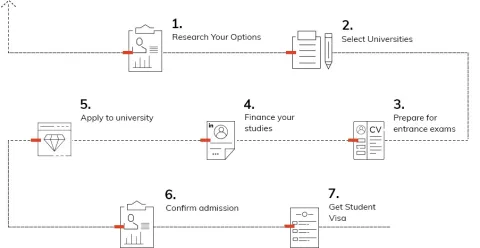
You will generally need the following for your Germany Student Visa application
Fees (per year)
€500 -€20,000
€5,000 – €30,000
€300 to €28,000
€300 to €3000
March
October
Student Applicant
- The age limit of the applicant must be above 18 years.
- International students in German universities can work 20 hours part-time per week and full-time during breaks such as the winter or summer holidays.
Spouse
- Germany allows the spouses of international students to work in the country. The spouse can also join the student in managing the expenses.
Universities
Technische Universität München
Ludwig-Maximilians-Universität München
Ruprecht-Karls-Universität Heidelberg
Humboldt-Universität zu Berlin
Freie Universität Berlin
KIT, Karlsruher Institut für Technologie
Rheinisch-Westfälische Technische Hochschule Aachen
Technische Universität Berlin
Technische Universität Dresden
Eberhard Karls Universität Tübingen
Universität Freiburg
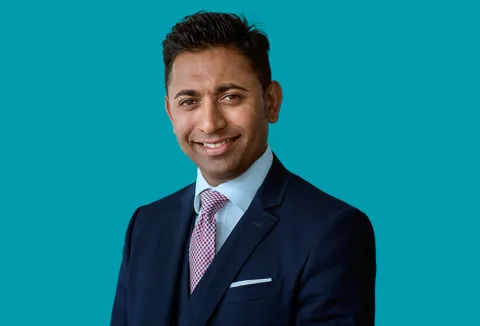


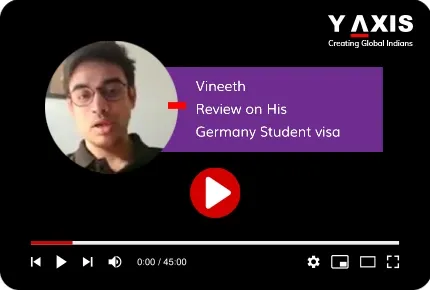
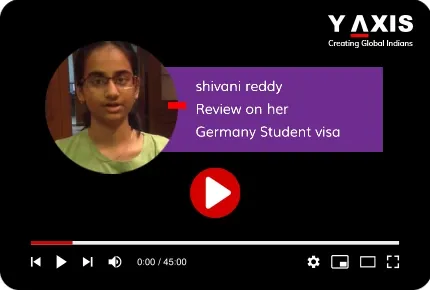
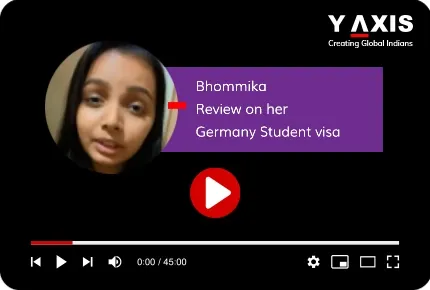
study in germany, study in germany consultants, study abroad in Germany, study in germany for indian students, germany study visa, germany visa fees, scholarship for indian students in germany, universities in germany for international students, germany student visa, germany university for foreign students, study abroad in germany, cost of living in germany for indian students, living expenses in germany for indian students, germany study visa requirements, germany student visa checklist, visa cost for germany from india, germany visa fees from india
Want to study in Germany? Explore top universities, courses, scholarships, visa information, and consultation. Get expert advice and free counseling on studying abroad in Germany.
Study in Germany: Universities, Courses, Visa, & Scholarships
India has officially become the largest source of international students who study in Germany. The numbers speak for themselves, with almost 43,000 Indian students now pursuing their education in German universities, marking a significant 15.1% jump from last year alone (Winter Semester 2023-2024).
So, what makes Germany such an appealing destination? For starters, public universities — many of which are state-owned universities — don’t charge tuition fees. Instead, students only pay a small administration fee of around €300–500 each semester. Plus, Germany invests heavily in its education system, spending approximately €14,200 per student every year — well above the OECD average. A significant portion of the country's GDP is dedicated to supporting its world-class education and contemporary facilities.
For Indian students, studying in Germany means access to affordable quality education without breaking the bank. The cost of living in Germany is reasonable too. While the mandatory amount in a Blocked Account is €11,904 per year (or €992 monthly), most students manage typical expenses — like housing, food, and healthcare — for around €842 per month, even when accounting for inflation.
Another big plus? German degrees are globally recognized. After graduation, students can stay up to 18 months to find work in their field. With 423 higher education institutions, including 120 universities in Germany, the country offers a wide range of programs in engineering, medicine, and tech-related studies — making it a top pick for those looking to build strong, future-ready careers.
As key changes for students in Germany in 2025 take shape, this guide will help you navigate everything you need to know to turn your German education dreams into reality
»Take the first step toward your future—connect with our expert Study in Germany consultants today and unlock world-class education, affordable tuition, and endless career opportunities!
Why Indian Students Choose Germany for Their Higher Education?
Germany stands out as the top choice for Indian students looking to study abroad. The winter semester 2023-24 saw 49,483 Indian students in German universities - a 15.1% jump from last year. Indian students now make up the biggest group of international students in Germany. Three compelling reasons make study in Germany, so attractive to Indian students.
Affordable education and no tuition fees
The money you save while getting study in Germany for Indian students is incredible. Public universities in Germany don't charge tuition fees from anyone - local or international students. This rule, 2014 old, makes quality education available to everyone whatever their financial situation.
Students just need to pay a small semester fee between €150-€350. This covers admin costs, student services, and lets you use public transport all semester long. You'll pay just these basic charges instead of thousands in tuition fees while getting world-class education.
German public universities lead the education sector. They offer about 70% of the 24,001 English-taught bachelor's and master's programs. But keep in mind that Baden-Württemberg state asks non-EU students to pay €1,500 per semester.
Global recognition of German degrees
Masters in Germany for Indian students are respected worldwide because of their advanced curriculum. These degrees carry real weight in the global job market, especially when you have engineering, technology, or management qualifications.
The Association of Indian Universities (AIU) accepts German degrees. Graduates get Equivalence Certificates that put them on par with India-educated students. This matters a lot if you plan to work in India later. Indian companies value candidates with German degrees because they bring international experience.
AIU has some rules though. Master's programs need to run for at least two years, and they don't accept fast-track degrees. These standards will give a solid reputation to German qualifications worldwide.
High demand for skilled professionals
Germany's resilient infrastructure creates excellent post study work visa Germany opportunities. The country has one of EU's lowest unemployment rates at 5.4% in 2022. German companies actively look for international talent.
Germany's Federal Employment Agency says the country needs about 400,000 skilled migrants each year. The hottest fields are:
- Information Technology: Software engineers and IT project managers earn €55,000-€65,000 yearly
- Healthcare: Medical practitioners and nurses
- Engineering: Mechanical, automotive, and electrical fields lead the way
- Research and Development: Scientists and researchers are in demand
International students get 18 months after graduation to find work in their field. Business graduates typically start at €36,000-€42,000 per year. These numbers make Germany a smart choice to build your career.
Study in Germany means more than just education. You'll position yourself in one of Europe's strongest economies with amazing career growth potential.
Top Universities in Germany for Indian Students
The right institution is the life-blood of a successful trip to study in Germany. Indian students can choose from over 400 universities across the country that match their academic dreams, career plans, and budget.
Public vs private universities
The German higher education world has mostly public universities. About 240 institutions make up 90% of all study programs in the country.
The biggest difference between these two types comes from their funding:
| Public vs private universities Aspect | Public Universities | Private Universities |
|---|---|---|
| Tuition Fees | Mostly free (except in Baden-Württemberg, where non-EU students pay fees) | €10,000–€15,000 for undergraduate programs; €10,000–€40,000 for graduate programs |
| Class Size | Larger class sizes | Smaller, more personalized class sizes |
| Language | Primarily German; some programs in English | Many programs in English |
| Admission Process | Very competitive due to high demand | Less competitive, often more flexible |
| Research Focus | Strong emphasis on academic research | Less research-oriented, more practice-focused |
Unlike many countries where private schools top the rankings, Germany's best include both public and private universities. This gives Indian students quality education options whatever their budget might be.
Best universities for engineering, management, and science
For study in Germany for Indian students who want to pursue engineering, these schools stand out:
- Technical University of Munich (TUM): Ranked #28 globally, TUM shines in interdisciplinary research, especially in technology, engineering, and sciences, with over 23,800 international students.
- RWTH Aachen University: Known for its strong engineering curriculum and detailed research projects, ranked #99 globally.
- Karlsruhe Institute of Technology (KIT): Famous for engineering studies, ranked #141 globally.
Top management schools include:
- Mannheim Business School: 17 years old with students from over 110 countries, international students make up over 60% of its student body.
- ESMT Berlin: Started in 2002 with triple accreditation from AACSB, AMBA, and EQUIS.
- Frankfurt School of Finance & Management: Known worldwide for finance and management education.
German universities for masters in science fields are a great way to get research opportunities and world-class facilities. The Technical University of Dresden ranks among the top 100 globally in 'Engineering and Technology'.
Top 10 QS Ranking Universities in Germany:
Here is a list of some of the top-ranked universities in Germany for international students:
| Name of the University | QS Ranking | Administrative Fees for International Students (per semester) |
|---|---|---|
| Technical University of Munich | 37 | €129.40 |
| Heidelberg University | 87 | €160 |
| Ludwig Maximilians University of Munich | 54 | €129.40 |
| Freie University of Berlin | 98 | €168 |
| Humboldt University of Berlin | 120 | €312.5 |
| Karlsruhe Institute of Technology | 119 | €168 |
| Technical University of Berlin | 154 | €168 |
| RWTH Aachen University | 106 | €261.5 |
| University of Freiburg | 192 | €168 |
| Eberhard Karls University of Tübingen | 213 | €162.5 |
How to shortlist the right university
While picking universities in Germany for masters, you need to look beyond general rankings. Department rankings often differ from overall university rankings—a university might excel in certain departments but be average in others.
Here are some factors to think about:
- Program curriculum and specialization options
- Research opportunities and facilities
- Location and cost of living (expenses vary substantially between cities)
- Weather conditions and adaptability to the local climate
- Industry connections and placement records
Research-focused students should find universities that offer the best research opportunities in their field. Looking at accreditation from agencies like ASIIN (Accreditation Agency for Study Programs in Engineering, Informatics, Natural Sciences, and Mathematics) will give a quality guarantee.
For MS in Germany for Indian students, the faculty's expertise and publication records can show you the academic strength of your chosen program.
Popular Courses to Study in Germany
Study in Germany requires careful program selection to maximize educational value and career opportunities. Indian students continue to flock to German campuses, and several fields stand out as popular choices due to their exceptional quality and job prospects.
| Name of the Programme | Annual Tuition Fee | Duration | Top Universities |
|---|---|---|---|
| Engineering | €10,000 | 3 - 4 years | University of Munich, Karlsruhe Institute of Technology, Technical University of Berlin |
| Business Management | €8,000 - €50,000 | 1 – 2 years | Mannheim Business School, EBS Business School, TUM Business School |
| Humanities and Art | €300 – 500 per semester | 3 years | University of Berlin, University of Hamburg, University of Cologne, Heidelberg University |
| Computer Science and IT | €10,000 - €40,000 | 2 years | Technical University of Munich, Technical University of Berlin |
| Social Sciences | €10,000 - €20,000 | 2 – 3 years | Humboldt University of Berlin, Technical University of Berlin |
| Law | €8,000 - €18,000 | 1 - 3 years | Wismar University of Applied Sciences, University of Leipzig, Saarland University |
| Natural Sciences | €5,000 - €20,000 | 2 – 3 years | University of Düsseldorf, University of Freiburg, University of Münster, Technical University Dresden |
| MBBS | €100 - €10,000 | 6 years | Heidelberg University, Technical University of Munich, Hannover Medical School, University of Hamburg |
Engineering and Technology
Germany's reputation as a global engineering powerhouse makes it an excellent destination for MS in Germany for Indian students. German engineering degrees open doors worldwide and substantially boost career prospects in India and internationally.
Popular engineering specializations include:
- Mechanical Engineering: Graduates earn between €45,000-€65,000 annually
- Automotive Engineering: Salaries average €86,306 per year
- Electrical Engineering: Professionals earn around €84,000 annually
Students benefit from the practical approach of German education. Programs blend classroom learning with hands-on experience, which creates exceptionally skilled graduates. The TU9 alliance of leading Technical Universities provides world-class engineering education with modern facilities.
Computer Science and Data Science
The rise of digital transformation has made computer science and data science attractive fields to study in Germany for Indian students. The Technical University of Munich ranks 33rd globally for computer science. Students can specialize in big data, AI, and machine learning.
Data science enthusiasts find excellent programs at Ludwig Maximilians University (LMU). The university teaches advanced knowledge in data analysis through practical methods. The University of Mannheim offers detailed data science education through multi-department cooperation.
Public universities charge minimal fees. EU students pay €100-€500 per semester, while non-EU students pay about €1,500. These affordable rates make study in Germany an attractive option compared to other countries.
Business and Management
Recent Statista reports show business administration remains a top choice among students. Masters in Germany in business fields focus on:
- General Business Management
- International Business Management
- Finance and Accounting
- Marketing Management
- Human Resource Management
Germany's position as Europe's largest economy and the world's fourth-largest creates excellent opportunities. Major companies like Volkswagen, BMW, and Siemens provide numerous internship and job opportunities for business graduates.
Health and Medicine
Medical studies in Germany demand dedication but offer great rewards. The program spans six years and culminates in the German Medical Licensing Examination instead of separate bachelor's and master's degrees.
The nationwide numerus clausus system bases admission on Abitur marks. Some universities require the Test für Medizinische Studiengänge. Rural regions offer excellent opportunities for general practitioners after graduation.
Health sciences programs prepare students for roles in health promotion, the pharmaceutical industry, and international organizations through focus on public health, healthcare management, and health education.
Humanities and Social Sciences
The Germany study abroad experience shines in humanities and social sciences. These fields include:
- Psychology
- Political Sciences
- Social Sciences
- Social Work
- Pedagogy and Educational Sciences
- Theology and Religion
German Social Sciences programs combine classical social theory with modern research methods. Students learn about migration, sustainability, and digital transformation. These reading-intensive programs equip students with theoretical knowledge and practical skills for various careers.
German universities' unique position at the heart of European social thought helps Indian students learn about global social dynamics. This knowledge prepares them for international careers in social research, policy analysis, or development.
Cost of Studying and Living in Germany
The cost of studying in Germany plays a vital role in planning your educational trip. Indian students choose German universities because they cost nowhere near what other countries charge. Here's a complete breakdown of expenses you should expect.
Tuition fees at public and private universities
German public and private universities have a substantial difference in their fee structure that affects study in Germany for Indian students:
| University Type | Tuition Fee Range | Notes |
|---|---|---|
| Public Universities | Mostly free | Except Baden-Württemberg (€1,500/semester for non-EU) |
| Private Universities | €5,000-€20,000/year | Higher for specialized programs[193] |
| MBA Programs | Up to €65,000 total | Varies by institution |
Public universities have seen a huge influx of international students since 2014 when they abolished tuition fees. The Technical University of Munich will charge non-EU international students €2,000-€3,000 per semester for bachelor's programs and €4,000-€6,000 for master's programs starting academic year 2024/25.
Semester fees and administrative charges
Students must pay semester fees for essential services even with free tuition:
The semester contribution has these components:
- Administrative fee: €80-100
- Student services fee: €87-97
- Student body fee: €1-7.50
These fees total between €100 to €350 per semester based on your university and location. While these costs seem modest compared to other countries, you need to budget for them before each semester starts.
Cost of living in Germany for Indian students
A single person's monthly expenses in Germany average around €842. You must show financial resources of €992 monthly. German living costs are 204% higher than India's, which makes a big difference for Indian students.
Monthly budget breakdown:
- Accommodation: €300-700 (shared) or €500-1,200 (private)
- Food: €150-250
- Health insurance: €80-160
- Transportation: €40-100 (often included in semester fees)
- Utilities and internet: €180-340
Cities like Munich and Hamburg cost more than Berlin, Frankfurt, and Cologne.
Blocked account requirements
German student visa applicants must open a blocked account (Sperrkonto) to prove they can support themselves. The current deposit requirement stands at €11,904 (as of 2025), with monthly withdrawals limited to €992.
The required amounts have grown over time:
- 2025: €992 per month (€11,904 annually)
- 2023-2024: €934 per month (€11,208 annually)
- 2021-2022: €861 per month (€10,332 annually)
Blocked account providers charge setup fees between €50-99 and monthly maintenance fees of €0-5.90. This account proves you can support yourself during your studies without depending on German employment.
Scholarships for Indian Students in Germany
Financial aid plays a vital role for many Indians planning to study in Germany. We focused on several prestigious scholarships that can reduce your educational expenses and offer benefits beyond just money.
DAAD and Deutschlandstipendium
The German Academic Exchange Service (DAAD) leads as the biggest scholarship provider for international students in Germany. They support over 100,000 German and international students each year. Indian students pursuing masters in Germany can receive monthly stipends of €992 for graduates and €1,300 for doctoral students. India ranks second globally in DAAD scholarships, with 2,785 Indian students getting funding in 2023.
The Deutschlandstipendium offers €300 monthly (€3,600 annually) to students whatever their nationality or income. Students who excel academically, participate in social activities, and show personal achievements can qualify for this support. About 31,500 students received this scholarship in 2023.
University-specific scholarships
German institutions have created their own funding programs for international applicants. These programs help cover both tuition fees and living expenses during your study period. Here are some great options to think about:
- Hamburg University of Applied Sciences Scholarships
- Humboldt University International Research Fellowships
- RWTH Aachen University Scholarships
Private and government-funded options
Students pursuing study in Germany can tap into many funding sources beyond DAAD:
- Heinrich Böll Foundation Scholarships: They support students at all levels and are affiliated with Germany's Green Party
- Konrad-Adenauer-Stiftung Scholarships: These target students with academic excellence and political engagement
- Friedrich Ebert Stiftung Scholarship: This program supports outstanding students committed to social democracy
Tips to improve your chances
Your scholarship prospects for MS in Germany for Indian students can improve with these steps:
- Create perfect documents: Write a compelling motivation letter, update your CV, gather academic transcripts, and get strong recommendation letters
- Show your extracurricular achievements: Your internships, volunteer work, and project participation boost your chances by a lot
- Submit on time: Different scholarships have different deadlines—plan ahead
- Show your best academic work: Selection teams look at your qualifications, project quality, and future potential
Note that competition is tough—only about 10% of Indian applicants succeed in getting a DAAD scholarship. You should apply to multiple scholarship programs at once to maximize your chances to study in Germany for free or at a lower cost.
MS in Germany for Indian Students
The number of Indian students getting an MS in Germany has almost doubled in the last five years. German master's degrees provide unique benefits that make them an excellent choice for international students.
Students can choose between two types of master's programs in Germany: consecutive and non-consecutive. Consecutive degrees continue from related bachelor's studies, while non-consecutive programs focus on professional growth and require work experience with an undergraduate degree. Most masters in Germany need four semesters (two years) to finish, though programs can last between 12-48 months based on specialization.
Indian students must meet three main requirements. A bachelor's degree or equivalent from a recognized university comes first. Many German universities accept 4-year Indian bachelor's degrees directly, but 3-year degree holders should check with course coordinators first. Students must also show language skills in German or English based on their program's teaching language.
English-taught programs accept these tests:
- IELTS (minimum 6.5)
- TOEFL (scores between 60-90)
German-taught programs require:
- TestDaF
- DSH (Deutsche Sprachprüfung für den Hochschulzugang)
- Telc Deutsch C1 Hochschule
Each institution has its own application process. Students can apply directly to universities or through uni-assist, a central service that evaluates applications. Required documents include certified copies of academic qualifications, language certificates, passport copy, and application fees. The first application costs €75, with each additional one costing €30.
German universities offer more than 11,193 English-taught master's programs. Public universities make about 60% of study programs in Germany tuition-free. Some professional master's programs like LLM or MBA may charge fees.
German universities have two semesters: winter (October-March) and summer (April-September), with two admission periods yearly. Most universities set application deadlines around July 15 for winter enrollment and January 15 for summer enrollment, though specific dates vary.
Students who complete their masters in Germany get an 18-month job search visa to find work in their field of study.
Admission Process and Eligibility Criteria
Getting into a German university needs a good grasp of application procedures and eligibility requirements. This piece will help you prepare for your German academic experience.
Intakes in Germany
German universities offer two main intakes each year:
- Winter Semester: Begins in October with applications typically opening in May
- Summer Semester: Starts in April with applications opening around December
The winter intake remains most popular with more program choices, while summer intake has less competition for seats.
Academic requirements for UG and PG
Indian students need these qualifications for bachelor's programs:
- School-leaving qualification or pre-university examination score of 50% or better plus one successful academic year at a higher education institution
- Students with scores below 50% must complete both Main and Advanced parts of IIT's Joint Entrance Examination
Master's programs require:
- A completed three-year bachelor's degree for subject-restricted admission
- A four to four-and-a-half year bachelor's degree for general admission to academic studies
Language proficiency: IELTS, TOEFL, TestDaF
English-taught programs accept these scores:
- IELTS: Overall band of 6-6.5 for undergraduate, 6.5-7.0 for postgraduate
- TOEFL: Scores between 80-100 depending on university ranking
German-taught programs recognize these certificates:
- TestDaF: Level 4 (TDN 4) in all four skills for most universities
- DSH: Level II or III
- Goethe-Zertifikat C2, telc Deutsch C1 Hochschule, or DSD II
Application timeline and deadlines
The application periods are:
- Winter semester: May 15 - July 15
- Summer semester: December 1 - January 15
Students should submit applications at least six weeks before deadlines to handle any missing documents.
How to apply for German universities
You can apply through two main routes:
- Direct application through university portals
- Application via uni-assist (€75 for first program, €30 for each additional one)
Some universities ask for Preliminary Review Documentation (VPD) from uni-assist among other documents. You should check the university's official website to confirm if they use uni-assist.
Required documents usually include certified academic transcripts, language certificates, passport copy, and applications forms. Indian students may need an APS certificate with their application.
Germany Student Visa Requirements for Indians
The Germany student visa process serves as a crucial milestone in your educational experience. Students from India must meet specific requirements to transform their study aspirations into reality.
Documents required for visa application
A complete application needs two similar sets of these documents:
- Valid passport issued within the last 10 years with at least two empty pages
- Completed and signed application form with declaration
- Three biometric passport photos (not older than 6 months)
- Letter of admission from a German university
- APS certificate from Academic Evaluation Center (exceptions exist for PhD/PostDoc students and scholarship recipients)
- Proof of financial means through a blocked account (€11,904 for 2025)
- Health insurance coverage
- Academic certificates and transcripts
- Language proficiency certificates (IELTS/TOEFL for English; TestDaF/DSH for German)
- Statement of purpose and curriculum vitae
Germany student visa fee and processing time
The costs and timeline break down as follows:
- Standard visa fee: €75 (approximately ₹6,768.20)
- Reduced fee for minors: €37.50
- Processing time for Indian applicants: approximately 12 weeks
The lengthy processing period makes early application essential. Students should apply right after receiving their university admission letter.
Common mistakes to avoid
Several issues can hinder your study in Germany plans:
- Submitting incomplete documentation
- Providing insufficient financial proof (incorrect blocked account details)
- Submitting poorly written motivation letters
- Making errors on application forms
- Inadequate interview preparation
- Missing application deadlines
- Applying with a tourist visa (cannot be converted to student visa)
Study visa vs residence permit
Your student visa remains valid for three months after entering Germany. You must then obtain a residence permit (Aufenthaltserlaubnis):
- The foreigners' office (Ausländerbehörde) in your German city handles applications
- Required documents include passport, enrollment certificate, financial proof, and health insurance
- Berlin's central processing takes 4-6 weeks
- Permits allow 140 full days or 280 half-days of work per year
- Residence permits need renewal after one year
Post-Study Work and Placement Opportunities
German graduates enjoy excellent career prospects. The strong job market and welcoming immigration policies make it a great destination to build a long-term career.
Post-study work visa in Germany
Students who complete their MS in Germany for Indian students get an 18-month post-study residence permit. This visa lets you work without restrictions as you look for permanent employment in your field of study. The extended period gives you enough time to find the right opportunities in the German job market.
Job market and in-demand sectors
The German economy needs qualified professionals in several growing sectors. The country needs about 400,000 skilled migrants each year to meet its labor requirements. Here are the most promising fields:
| Sector | Average Annual Salary | Demand Level |
|---|---|---|
| IT & Software | €55,000-€65,000 | Very High |
| Healthcare | €50,000-€85,000 | High |
| Engineering | €45,000-€86,306 | High |
| Data Science | €50,000-€70,000 | Growing |
How to get placements after graduation
These strategic approaches help secure employment after study in Germany:
- Make use of university placement services and career fairs
- Build professional networks through LinkedIn and industry events
- Create customized applications for each position rather than generic submissions
- Take up internships during your studies to gain relevant experience
German language skills improve your job prospects by a lot, especially in roles that need frequent communication.
Path to permanent residency (PR)
German university graduates can get their settlement permit (PR) after just two years of working in their field of study. Here are the main requirements:
- Pay into the statutory pension scheme for at least 24 months
- Show German language proficiency (minimum B1 level)
- Have sufficient living space and financial stability
- Pass the "Life in Germany" test that checks your knowledge of German laws and culture
German university graduates get faster access to permanent residency compared to other skilled workers.
Education Loan for studying in Germany
Getting your study in Germany adventure funded needs good planning. Education loans are a great way for Indian students to finance their overseas education. German education is known for its quality, but living costs can be high. Students need to understand their loan options well.
Types of Education Loans for Germany
Indian students can pick from two main loan types:
| Loan Type | Features | Interest Rates | Collateral Requirement |
|---|---|---|---|
| Secured Loans | Higher amounts, lower interest | 9.55%-11.50% | Property/Fixed deposits required |
| Unsecured Loans | Moderate amounts, higher interest | 11.25%-14% | No collateral but may need co-applicant |
Expenses Covered and Loan Amounts
Education loans for study in Germany for Indian students help pay for:
- Tuition fees (if applicable)
- Accommodation costs
- Travel expenses with one economy return ticket
- Examination and administrative fees
- Study materials and equipment
- Blocked account requirement (€11,904 as of 2025)
SBI's Global Ed-Vantage Scheme lets you borrow up to ₹1.5 Crore with a 15-year repayment window. HDFC also supports students with loans up to ₹1 Crore for various courses like MS in Germany for Indian students.
Eligibility and Document Requirements
The loan eligibility criteria are straightforward:
- You must be an Indian citizen aged 18 or above
- You need admission to a recognized German university
- Your course should be job-oriented
- You should show proof of blocked account funds
Your application needs academic transcripts, admission letter, fee details, passport copy, and collateral documents where needed. Banks accept residential/commercial property or fixed deposits as collateral for secured loans.
How Much Does It Cost to Study in Germany?
Germany is known for its affordable and high-quality education system. Public universities generally charge no tuition fees, but students should still budget for living costs, semester fees, and other essentials. Here's a breakdown of the major expenses.
| Type of Fee | Cost | Notes |
|---|---|---|
| Public University Tuition (UG & MS) | €0 | Free for most international students |
| Semester Contribution | €150 – €350 | Covers administration, transport, and student services |
| Tuition in Baden-Württemberg (non-EU only) | €1,500 per semester | Applies to non-EU students only |
| Specialized/Executive Programs | €4,000 – €6,000 per semester | E.g., MBA, advanced tech/engineering programs |
| Private University Tuition | €5,000 – €20,000+ per year | Depends on the course and institution |
Scholarships in Germany for Indian Students
The government of Germany offers scholarships for international students to study so that they can do so without worrying about the cost and other financial burdens.
Here are government-sponsored scholarships for studying in Germany.
| Name of the Scholarship | Amount Offered | Eligibility Criteria | Deadline |
|---|---|---|---|
| DAAD Scholarship | €850 - €1200 | Must have excellent academic record | July 31, 2024 |
| Deutschland Stipendium | €300 | National and International students are eligible | June 30, 2025 |
| Erasmus Scholarship Programs | €350 | All international students are eligible | January 15, 2025 (Tentative) |
Non - Government scholarships in Germany
These scholarships are not funded by the government but by other private entities. Here are some non-government-sponsored scholarships for studying in Germany.
| Name of the Scholarship | Amount Offered | Eligibility Criteria | Deadline |
|---|---|---|---|
| Friedrich Ebert Foundation Scholarship | €850 - €1200 | Must have good academic record | April 30, 2025 |
| Konrad-Adenauer-Stiftung Scholarship | €300 | All PG & PhD students under 30 with excellent academic record are eligible | September 21, 2024 |
| Heinrich Boll Foundation Scholarship | €10,200 - €12,000 + allowance | All PG & PhD students admitted to a German university | September 2, 2024 – March 1, 2025 |
| Bayer Foundation Awards | €30,000 | Must have good academic record | May 6, 2024 |
| Mawista Scholarship | €500 | For applicants planning to study in Germany with a child | January 15, 2024 |
| Marie Curie International Incoming Fellowships (IIF) for developing countries | €15,000 | International students planning to pursue PhD in Germany | September 11, 2024 |
Steps to Apply For Scholarships
Step 1: Find the exemplary scholarship that suits your needs and check if you are eligible for the same
Step 2: Collect all the enlisted documents and translate the documents if required
Step 3: Apply and wait for a decision
Top Lenders and Application Process
Start by looking at public banks like SBI, Bank of Baroda, and Punjab National Bank. Private institutions such as HDFC Credila, Avanse, and InCred are good options too. Compare their interest rates, processing fees, and repayment terms before you apply.
Students already in Germany can check out local options. The KfW Student Loan provides €100-€650 monthly to help with living expenses.
Bottom Line:
Study in Germany has become a top educational choice for Indian students who want quality education at reasonable costs. Germany proves to be an outstanding destination that offers world-class education with no tuition fees at public universities. The mix of budget-friendly living expenses, degrees recognized worldwide, and bright career prospects makes Germany an ideal choice for driven Indian scholars.
German universities give students amazing value with programs in engineering, computer science, business, and healthcare of all types. The path from picking your university to getting financial help through scholarships creates a clear map to succeed academically abroad. The visa process, while needing good preparation, lets you access this rich international experience.
What happens after graduation is just as exciting. An 18-month job search window and quick paths to permanent residency mean study in Germany for Indian students goes beyond just education. Your German degree investment pays off through better global job prospects and professional growth chances.
Germany stands out among international education options with its unique blend of academic brilliance and affordability. The German education system's hands-on approach gets you ready for real-life challenges and helps you think critically. Your future starts with action today - research programs, get your applications ready, and plan your finances to make your German education dreams real.
Read more related article:
- Explore Master’s Programs in Germany for international students.
- Learn about Bachelor’s Degrees in Germany and your opportunities.
- Interested in an MBA in Germany? Find more details here.
- Find out how Germany allows foreign students to work 9 months ahead of the course and 2 years after the degree.
- India ranks #1 for international students in Germany—learn more.